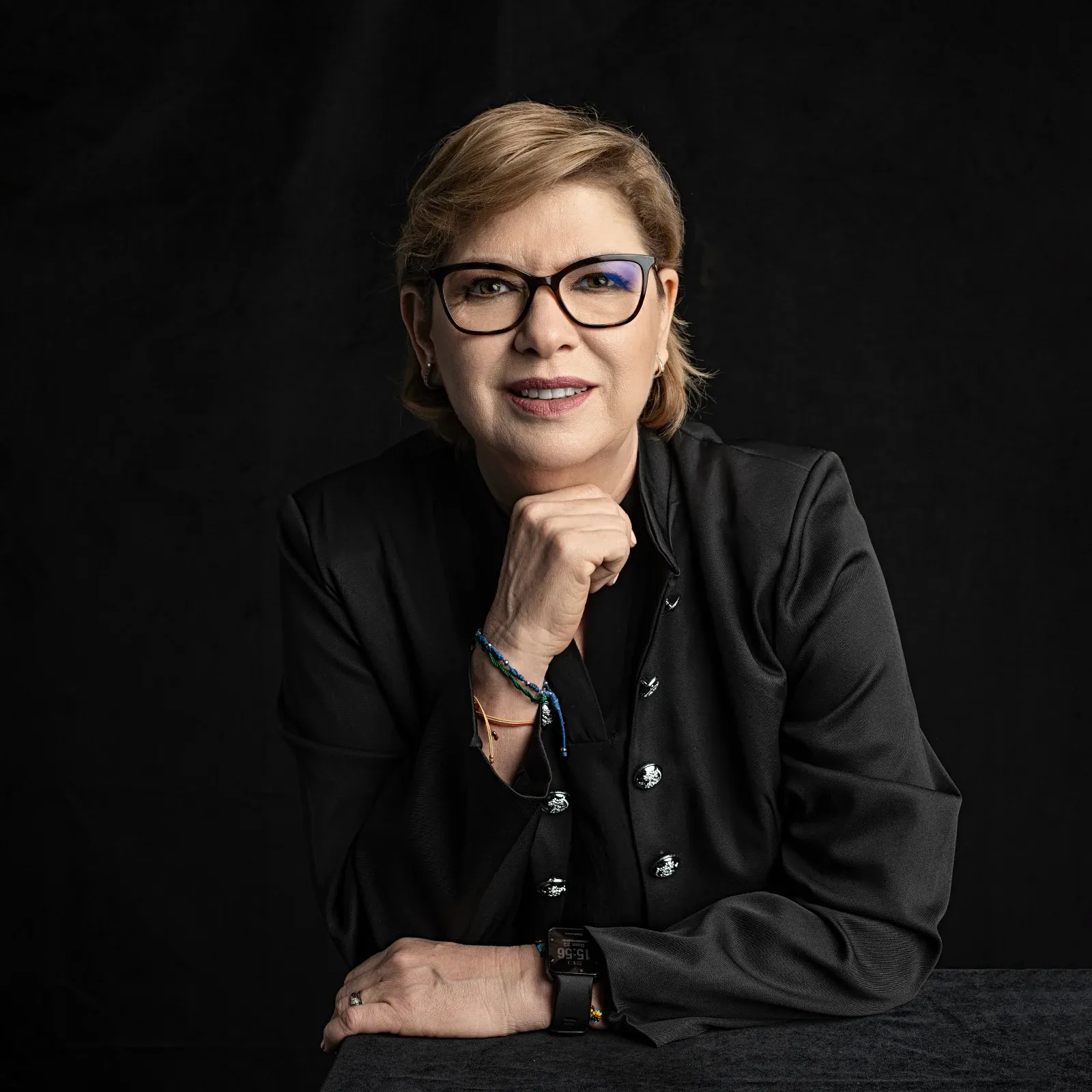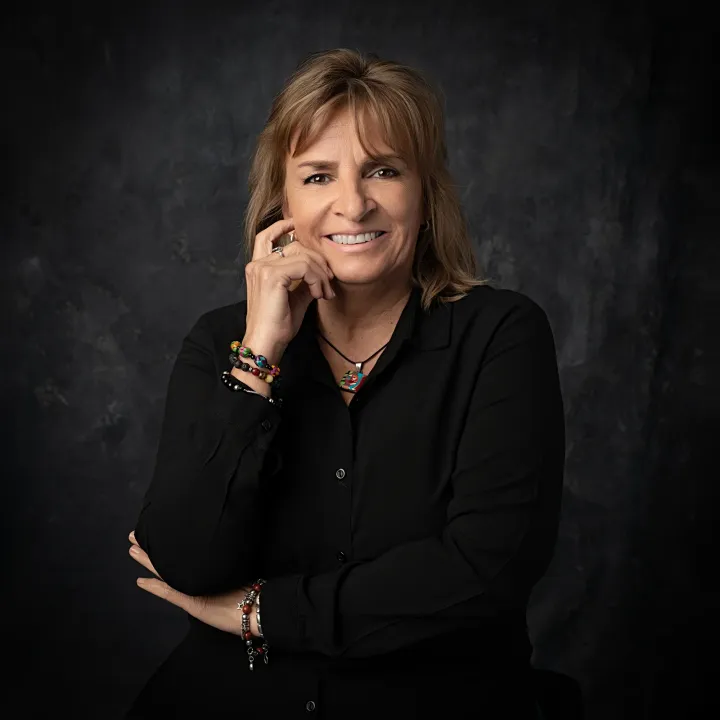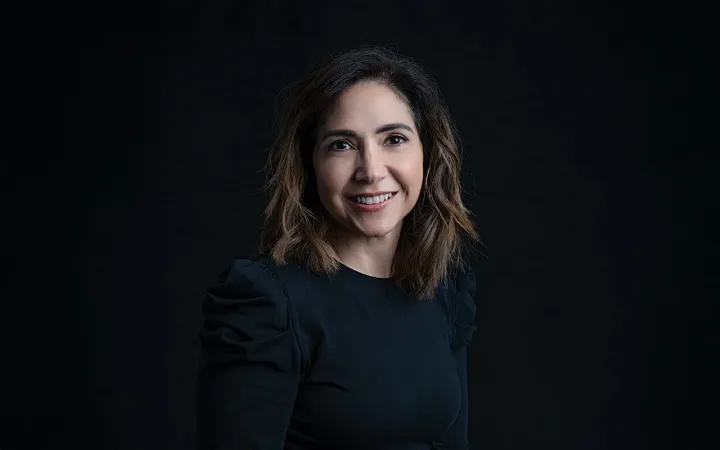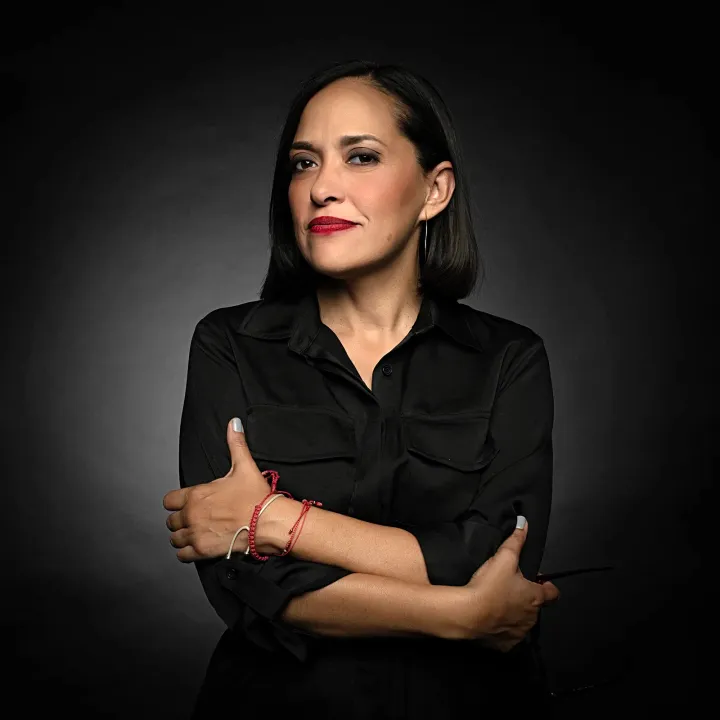Por Claudia Pérez Atamoros

Hoy, en Opinión 51, estamos de fiesta, de manteles largos pues. Ayer, se anunció la entrega del Premio Nacional de Periodismo por Trayectoria a Soledad Durazo Barceló, nuestra Soledad, nuestra Editora General, maestra de generaciones de periodistas (25 años), entre las que me cuento, orgullosa, orgullosísima desde hace más de una década. Su calidad profesional es de excelencia. Su entrega al oficio, total. Su don de sororidad y empatía se cuece aparte.
Resumir su largo transitar periodístico no es cosa fácil. Egresada de la licenciatura de Ciencias de la Comunicación por la Universidad de Sonora, especialista en comunicación y gestión por la Complutense de Madrid y Maestra en administración pública por el Instituto Sonorense de administración pública, Soledad Durazo tiene más de 35 años de trabajo ininterrumpido en radio, televisión, prensa e internet. Actualmente conduce Soledad Durazo en Fórmula Sonora y es directora general del portal con su nombre. Condujo el noticiario sonorense de TV AZTECA, el de Larsavision y ha escrito en diversos periódicos.

En la historia del Premio Nacional de Periodismo que comenzó en 1976, cuando el Estado jugaba a ser juez y parte de la designación y entrega, sólo dos mujeres fueron reconocidas por sus años de labor y entrega, ellas fueron: En 1983, Magdalena Mondragón, la primera mujer en firmar las 8 columnas en un periódico y en 1999, Sara Moirón, la implacable e impecable jefa de información de noticiarios de Canal 13 en los 80.
La nueva etapa, ya sin la mano negra del Gobierno, que inició en 2001, tampoco ha hecho justicia a la trayectoria periodística de las mujeres. Del 2001 y hasta el 2012, ni una sola obtuvo el premio en esa categoría. Ya en 2013 se reconoció a Elena Poniatowska; en 2015 a Sara Lovera López quien, por cierto, recientemente se convirtió en la primera editora de género contratada por un medio periodístico; en 2016 se le otorgó a Blanche Petrich. Y tuvo que pasar un año en blanco para otorgarlo de nuevo, en 2018, a dos mujeres con largo y exitoso quehacer, Elsa Medina y Cristina Pacheco. Al año siguiente, 2019, lo recibió Alma Guillermoprieto y, hasta ahora, en correspondencia los premios 2023, justo a su trayectoria y haciendo justicia también, al periodismo ejercido desde otros lugares distantes a la capital, descentralizando y reconociendo el ejercicio de informar y comunicar de las periodistas que residen en otros estados del país, a Soledad Durazo.
En los 48 años de existencia del Premio Nacional de Periodismo, son cerca de 500, más o menos, quienes han sido distinguidos en alguna de sus categorías y solo unas 80 mujeres lo han obtenido y de ellas, solo a 9 les han reconocido su trayectoria. Díganme ustedes si es normal. ¿Y la paridad?
La historia de las mujeres en el periodismo es la historia de nuestro tiempo, una historia permanente. De injusticia y desigualdad. Ellas estuvieron ahí desde el principio. Reportearon y consignaron cada momento del quehacer humano en México y en el mundo.
Fueron relegadas y utilizadas a conveniencia. Sus notas fueron publicadas pero acreditadas a un hombre, o sin firma, o bajo pseudónimo. Y es que, como mujer, la periodista era “una segundona”. Muchas, optaron por dedicarse a las áreas de sociales, culturales o de espectáculos, incluso a cubrir la nota roja porque era donde cabían. Durante años fueron co-conductoras al lado de un hombre. Solas, ¡nooombre!
Aquellos las miraban con desdén. Para ellas, el acuartelamiento al que fueron sometidas fue la manera de colarse en el mundo de las redacciones llenas de machos bien fajados. Indolentes algunos, otros groseros y unos pocos, solidarios.
Ellas crearon periódicos y revistas y no abandonaron a las de su género. Publicaron voces que hablaban de paridad de género, de la elección de vida y posibilidad de educarse profesionalmente. Se inmiscuyeron en asuntos solo de varones. Hablaron de política, editorializaron, y hasta caricaturizaron los momentos.
Una de las primeras y más acuciosas investigadoras sobre el periodismo femenino, María del Carmen Ruíz Castañeda, ya desde 1956 se preguntaba por qué no se reconocía todo lo que las mujeres habían aportado al periodismo, por qué se les ignoraba. Señaló que el hueco existente respecto del trabajo periodístico femenino era absoluto para reconocer y nombrar a las periodistas como reporteras, pioneras, fundadoras, editoras, directoras… y que venía desde los orígenes del periodismo nacional. Esa invisibilidad, sostuvo, hacía parecer que las mujeres nunca hubieran colaborado en el periodismo mexicano.
Señalaba que tendríamos que ser nosotras, las periodistas quienes diéramos a conocer el trabajo de todas y cada una de ellas. Y así ha sido. Ruíz Castañeda se convirtió en experta en periodismo femenino; y luego llegaría una camada de jóvenes reporteras interesadas en el tema que con el tiempo se convertirían en importantes investigadoras como Elvira Hernández. Y más tarde las de a pie, que habiendo crecido escuchando historias, leyendas y mitos sobre tal o cual “compañera periodista”, desarrollamos un interés que ha tocado los límites del fanatismo con tal de clarificar sus vidas.
Las pienso e imagino tratando de abrirse paso, tomando decisiones, siempre cuestionadas, renunciando a privilegios, acosadas laboralmente, incomprendidas, viviendo en soledad… para luego terminar olvidadas, ignoradas.
¿Por qué de los periodistas hombres conocemos tanto y hasta detalles, por qué sabemos sus fechas exactas de nacimiento, publicación, formación y momentos claves en sus carreras y de ellas nos conformamos con poner “se ignora su fecha de nacimiento, no se sabe si tuvo hijos, se cree que nació en, al parecer estudió…o peor aún, nos dedicamos a reproducir lo poco que se conoce sin dedicar ningún esfuerzo adicional para aportar datos y momentos precisos en sus vidas e incluso visibilizar a otras muchas que abonaron tanto?
Digamos además que, para infortunio de unas, otras han corrido con tanta suerte que con los años no solo las visualizamos, sino que nos engolosinamos con sus vidas; olvidando a un montonal de trabajadoras de la tecla, del periodismo de a pie, que se la han jugado como las más grandes porque ser mujer y periodista, en sus épocas no fue miel sobre hojuelas.
Como no lo ha sido para Soledad Durazo, enemiga de la queja. Pero para quien el trayecto para alcanzar sus metas no ha sido plano y sí muy meritorio.
Aún hoy es una constante el desprecio al trabajo de la mujer y de la periodista: o porque es ama de casa o porque es “una putona del bienestar”, o “necesita una buena cogida pa´que aprenda o que se venga…”. Ya no nos amedrenta nada, ni los exabruptos, ni las vulgaridades, ni la horda de ataques por tener opiniones propias y hacerlas valer. No en balde se creó Opinión 51.
Por cierto, hoy, hay descuento ¡y qué descuento! para quienes festejen con nosotros el premio de nuestra querida Soledad y se suscriban a Opinión 51.
Las opiniones expresadas son responsabilidad de sus autoras y son absolutamente independientes a la postura y línea editorial de Opinión 51.






Comments ()